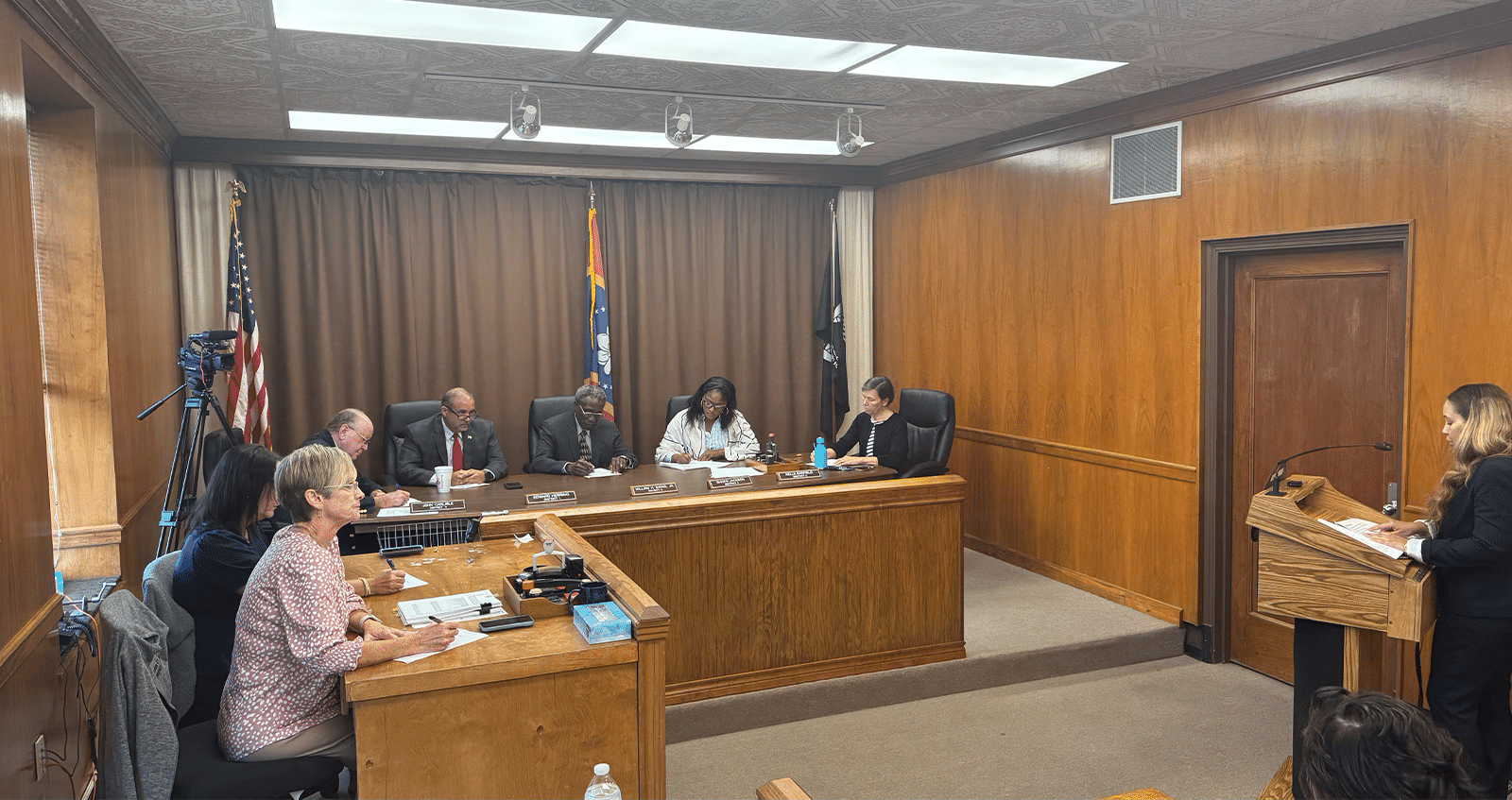News
Warren County supervisors split on school funding, approve 2.14-mill increase

VICKSBURG, Miss. (VDN) — The Warren County Board of Supervisors on Tuesday approved the FY2026 budget by a split vote, with Board President Kelle Barfield breaking the tie to adopt an ad valorem levy of 119.91-mills, a 2.14-mill increase, the county’s first increase in six years.
The approval of the budget also gives an an increase of $1 per hour for all eligible Warren County employees, as well as increasing the minimum pay per hour from $14 to $15.
County Administrator Nkemdili Lewis explained the impact of the ad valorem increase during the public hearing.
“This increase means you will pay more in ad valorem tax on your home, automobile tag, utilities, business fixtures and equipment, and rental real property,” Lewis said. “This increase was necessary due to an increased bond request from the Vicksburg Warren School District.”
As reported previously, the school board requested $34.8 million in ad valorem taxes for FY2026, including a base amount of $33.4 million plus an additional 4% increase.
Supervisors John Carlisle and Ed Herring voted against the measure. Carlisle argued that declining enrollment does not justify a larger allocation.
“They don’t need any more money,” he said. “They need to manage what they’ve got and not blow it on everything. They see it like a little child—mama said he could have a cookie, and he reached in the jar and grabbed three or four. They just want more and more money, and I don’t see a whole lot out of it.”
Carlisle also questioned the district’s reported graduation and dropout rates.
“I don’t believe it’s 92% graduation and only 5% dropout. They must not be teaching them anything. It’s what we used to call social promotion. I hated to do it, because all the hard work Nkemdili, Randall, and the board put in was aimed at keeping us from having to raise taxes. Then here they come at the last minute.”
He pointed to a recent legal battle in Simpson County, where supervisors were sued over school funding.
“They sued the board and lost with prejudice, and then they appealed to the supreme court,” Carlisle said. “Like I see it, let them sue us. Then we’d really show all the big numbers.”
Herring, of District 1, echoed Carlisle’s opposition, though in less pointed terms.
“Over the last four or five years, this board has done a really good job trimming costs, saving money, and running efficiently,” he said. “It’s not that I oppose the school district getting more money, what I ask them to do is the same thing we’ve been doing—cut your costs and streamline, like we have. That’s my only hangup, we’ve done a great job of reducing costs, and giving pay raises, and making the county run. So I just asked every else to do the same.”
Lewis added that while 70.25% of the county’s current budget was funded by ad valorem taxes, the figure is expected to fall to 68.27% in FY2026, reflecting the additional revenue sources.
“The county has done well over the past few years, even to go back to three years before, it was more than that, and decreasing the amount of money depending on the tax levy and increasing the amount of money we received from outside sources,” said Lewis. “So meaning, we are spending lists of taxpayers’ money annually. [In] ’25, it was 70%, ’26, it was 68%. And I think 24, it may have been like 72%. So we’ve done well with know, doing things to bring other funding sources in.”
Barfield added for context that Warren county millage for the most recent reported year was lower than 43 out of 82 counties in Mississippi, or slightly below the average. In addition, millage for schools remains lower than the maximum allowed under state law (55-mills). As approved, although county millage will remain the same, this is the first overall millage increase in six years. In 2020, millage was actually lowered, where it remained the same for five budget cycles.
“Anyone who pays bills knows that costs of everything, from materials to insurance to labor continues to rise,” said Barfield. “Costs of county services is no different. But the board of supervisors and our county administrator worked to identify other sources of revenue such as grants, gaming revenue, and federal or state funds so that we could absorb cost increases and the additional amount to be used for schools without raising the millage that goes to the county.”
Barfield noted that although the Board of Supervisors held a public hearing today to hear input from country residents prior to voting on the budget, there were no residents present who wished to comment.
See a typo? Report it here.












